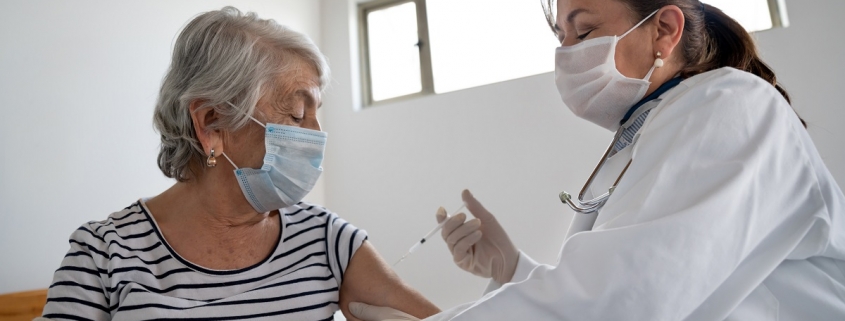The COVID-19 Vaccine: Safe for Cancer Patients?
As we approach the one-year mark of the pandemic, nearly 60 million doses of the two currently approved COVID-19 vaccines have been administered nationwide. However, public opinion differs on the efficacy and safety of these vaccines, and some people have expressed reluctance — or outright refused — to receive one.
For cancer patients and survivors, who are at a high risk of becoming severely ill from a COVID-19 infection, this is an extremely important decision. It is essential that they and their caregivers know all the information regarding these vaccines and whether they are safe to take.
The Safety of the Vaccine
In short, it is safe for cancer patients and survivors to receive a COVID-19 vaccine. Nor does it matter which one they receive. Vaccines created by both Moderna and Pfizer have been approved by the Food and Drug Administration (FDA) and report an efficacy rate of approximately 95%. Cancer patients and survivors of all ages are encouraged to get vaccinated whenever they can.
The vaccine is also safe for anyone currently undergoing chemotherapy and radiation treatment. However, patients receiving very intensive cytotoxic chemotherapy, such as 7+3 regimen for acute myeloid leukemia (AML), should wait until their absolute neutrophil count (ANC) recovers before getting the vaccine. Those receiving bone-marrow transplants or cellular therapy such as chimeric antigen receptor (CAR) T-cell therapy should wait at least three months after their therapy has been completed.
There may be side effects to receiving a COVID-19 vaccine, such as pain and swelling at the injection site, as well as headaches, chills and fever. These aren’t expected to be any worse or different for cancer patients and survivors.
Caregivers and Vaccines
COVID-19 is highly contagious, so it is important that caregivers also be vaccinated in order to mitigate the risk of exposing patients or loved ones to infection. It is safe, too, because receiving a vaccine will not turn a caregiver into a carrier.
However, data from trials have shown that while vaccines decrease the incidence of COVID-19 and its ensuing complications, it is unclear if they prevent infection and possible transmission. Consequently, people should continue to wear a mask, maintain social distancing, and wash their hands regularly even after they have been vaccinated.
Cancer patients are also at a high risk of developing serious complications from the flu, so it is important that they and their caregivers receive a flu shot. This is especially true during the pandemic; while the flu shot won’t stave off COVID-19, it will lessen the severity of the flu and ease the burden on hospitals and healthcare organizations that are already overwhelmed treating the millions fighting COVID-19.
Keeping our Patients Safe
Since the pandemic was first declared last March, American Oncology Network (AON) has prioritized the safety of our staff and patients. We continue to do so by encouraging all employees to get vaccinated as soon as they can, which allows us to continue administering top-quality care to our patients right in their own community.
In the future, we hope to be able to administer the vaccines to patients and staff all throughout our network.







